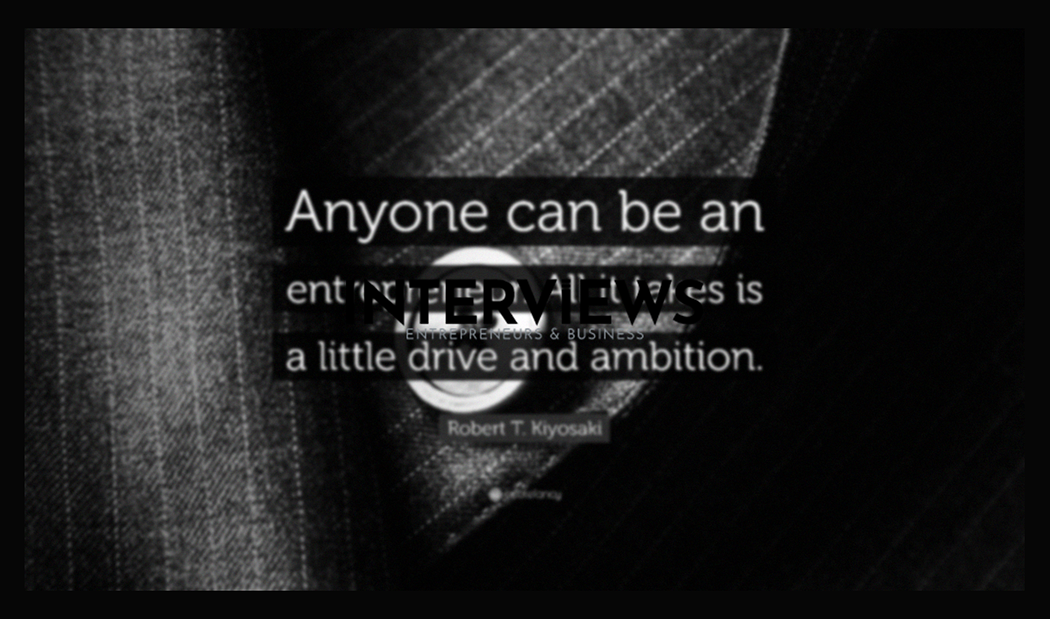So, You Want to Be Your Own Boss? A No-Fluff Guide to Starting a Business
Thinking of leaving the 9-to-5? Awesome choice. Entrepreneurship is exciting. But, let’s be honest. Starting a business takes more than just a “great idea.” You need strategy, perseverance, and knowledge.
Knowledge gives you power. Books provide concentrated knowledge. Let’s discuss the essential books for launching a successful business. This is your straightforward reading list. It will help you avoid mistakes and help you create something amazing.
The Entrepreneur’s Bookshelf: Your Starting Lineup
First, let’s provide you with some essential business wisdom. These texts serve as foundational courses for entrepreneurs.
- “The Lean Startup” by Eric Ries: This guides you through startup uncertainty. Ries focuses on building, measuring, and learning. This is key to ensuring you create something people want. It emphasizes learning rather than hoping for success.
- “Start with Why” by Simon Sinek: Wonder why some brands have keen followers? Purpose is everything. People buy the “why,” not just the product. This book helps clarify your “why” and shows how to share it.
- “The E-Myth Revisited” by Michael Gerber: Most small businesses face failure. Gerber explains this happens because technicians often struggle as business owners. This book illustrates the need to work ON your business.
- “Mastery” by Robert Greene: Want to excel? This book provides a path to mastery in any field. It dives into skill acquisition and long-term dedication. Building a business takes time.
- “Business Model Generation” by Alexander Osterwalder & Yves Pigneur: Ideas are widespread; business models matter. This book frames how to design and improve your business model using the Business Model Canvas. Think of it as your blueprint for profit.
- “Built to Last” by Jim Collins & Jerry Porras: Dream of a lasting company? Collins and Porras studied enduring companies. They reveal secrets behind their long-term success, focusing on purpose and vision.
- “The Mom Test” by Rob Fitzpatrick: Stop asking your mom if your idea is good. She’ll say yes, always. This book shows you how to ask the right questions to collect honest feedback. This step is crucial before investing your savings.
- “The Hard Thing About Hard Things” by Ben Horowitz: Starting a company is often glamorized. This book reveals the tough realities. Horowitz gives practical advice for overcoming challenges in entrepreneurship.
- “Zero to One” by Peter Thiel: Creates new ideas or copies existing ones? Thiel suggests real value comes from innovation. This book pushes you to think beyond conventions and strive for originality.
- “Getting Things Done” by David Allen: Productivity isn’t merely about more tasks; it’s about effectiveness. Allen’s system helps manage time better, vital for staying organized when juggling many tasks.
- “The Tipping Point” by Malcolm Gladwell: Why do some ideas succeed while others fail? Gladwell analyzes social epidemics. Understanding these dynamics can create success in marketing.
- “Think and Grow Rich” by Napoleon Hill: Consider this one of the original self-help texts for entrepreneurs. The basic tenets of mindset, goal setting, and persistence are timeless for success.
- “Influence” by Robert Cialdini: Business is grounded in persuasion. Cialdini outlines six principles that influence others. Grasping human behavior is crucial for persuading customers.
- “The Power of Habit” by Charles Duhigg: Habits shape us and our businesses. Duhigg discusses how habits form and how to cultivate good ones. Small habits can lead to significant impact.
- “Outliers” by Malcolm Gladwell: Is success merely hard work? Gladwell argues external factors like timing and opportunity are vital. It’s a thought-provoking examination of success as multifaceted.
Before You Even Think About “Open for Business”
Books are handy, but now let’s get practical. Before ordering business cards, lay a solid foundation. Building a business requires a strong base.
- Market Research: Do your research. Is there demand for your product? Avoid assumptions. Engage potential customers, assess competitors, and survey the market.
- Business Plan: It may seem dull, but it matters. A business plan is necessary not just for investors but for you. It forces you to analyze strategy, finance, marketing, and operations.
- Funding: Money fuels business. Determine how you’ll finance your venture: savings or loans or investments? Create a realistic financial strategy to mitigate cash flow struggles.
- Business Location: Choose: online or physical store? Location matters greatly in today’s market. Think about target audience, logistics, and expenses involved.
- Business Structure: LLC, sole proprietorship, or corporation? Each type has unique legal and tax implications. Make informed decisions; they are crucial.
- Business Name: Generate names, check availability, and choose something memorable that aligns with your brand ethos. Your name makes the first impression.
- Registration: Finalize it! Register with relevant authorities. Neglecting this can lead you into troublesome interactions with the IRS.
- Tax IDs: Secure your federal and state tax IDs. Comply with requirements from day one to avoid issues later.
- Identify a Need: What problem does your business solve? Successful ventures meet real needs in the market. Solve pain points effectively.
- Uniqueness: What sets you apart? Differentiation is key in competitive markets. Define your unique selling proposition (USP) that attracts customers.
- Identity: Why are YOU the right entrepreneur? Your skills, experiences, or passions guide your journey. Personal motivations are as crucial as business objectives.
What Makes a Small Business Actually Work?
Beyond logistics, certain key elements drive successful small businesses. It’s straightforward but demands dedication.
- Problem Solving: Successful businesses tackle problems effectively. They identify needs and provide solutions. Solve genuine issues and customers will come.
- Meeting Customer Needs: Focus on customers’ needs matters greatly. Understand those needs and adjust products or services accordingly. Happy consumers tend to return.
- Adaptability: The business landscape evolves continuously. Stay prepared for shifts in market conditions, tech updates, or feedback from clients.
Brainstorming Your Money-Maker: Profitable Business Ideas
Unsure what kind of business to start? Here’s a list of viable ideas to inspire you.
- Service-Based Businesses:
- Cleaning services: High demand and low entry barriers make this appealing.
- Digital marketing agency: Every company needs an online presence now more than ever.
- Consulting: If you possess expertise, consulting can provide lucrative opportunities.
- Online Tutoring: Education is always needed, especially in today’s digital age.
- Personal Training: Growing health consciousness opens possibilities here.
-
- Development: Apps are in demand. Coding skills can lead to many opportunities.
- Handyman/Repair Services: Repairs are necessary. People seek trustworthy services.
- Auto Repair: Cars need care. It’s a service with constant demand.
- Social Media Management: Businesses want social media help. Turn skills into income.
- Video Production: Video leads content marketing. Visual storytelling engages audiences.
- Virtual Assistance: Professionals need help with admin tasks. Provide virtual support.
- Home Organizing: Clutter causes stress. Assist people in organizing their homes.
- Photography: Capture special moments. Services are needed for events.
- Pet services: Pet owners spend on pets. Tap into this market.
- Event Planning: Milestones are celebrated. Planning requires attention to detail.
- Freelance Writing: Content is key. Businesses need quality writing.
- Digital freelancer: Offer digital skills like design and marketing as a freelancer.
- Product-Based Businesses:
- Niche ecommerce store: Focus on a specific product area online.
- Print-on-Demand: Design products without inventory. Low risk, creative chance.
- Affiliate Marketing: Promote products for commissions. Potential for passive income.
- Other Business Ideas:
- Cybersecurity: Protect businesses online. Security is crucial.
- Food Trucks/Catering: Mobile food and catering are popular. Flexibility attracts customers.
Starting on a Shoestring: Low-Cost, High-Profit Strategies
Low starting capital? No issue. Many businesses need little investment but can yield profits.
- Freelance Writing/Design: You need skills and a computer.
- Virtual Assistant: Use your organizational skills from home.
- Online Tutoring: Teach knowledge online.
- Consulting: Your expertise is an asset.
- Print on Demand: No inventory expenses, focus on design.
- Affiliate Marketing: Use a blog or social media to promote products.
- Dropshipping: Sell online without handling stock.
- E-commerce: Start small with a curated online store.
- Social Media Management: Help boost online presence.
- Handmade Crafts: Sell creations online or at markets.
- Cleaning Services: Just need basic supplies.
- Pet Sitting/Dog Walking: Love animals? Create a business.
- Home-Based Catering: Start small if you love cooking.
Beginner’s Luck (and Savvy): Points to Remember
Starting out? Keep these points handy for better success odds.
- Skills and Interests: Start what you love. Passion drives you. Don’t just chase money; care about it.
- Market Research: Validate ideas before investing money again.
- Budget: Be real about costs and income. Don’t underestimate expenses.
- Start Small: Begin lean, test the waters, then expand gradually.
- Market Trends: Watch industry movements. Is your idea growing or stagnant?
- Know Yourself: Understand your strengths and motivations for better results.
Why Startups Sometimes Fail: Causes of Business Failures
Many small businesses fail. Understanding reasons helps avoid common mistakes.
- Lack of Capital: Running out of funds is deadly. Financial planning is vital.
- Poor Management Team: Build a strong team. You can’t do everything alone.
- Weak Business Model: A shaky foundation causes downfall. A solid model is essential.
- Ineffective Marketing: No marketing leads to no customers. Marketing matters greatly.
- Cash Flow Issues: Profit isn’t the same as cash flow. Manage it closely.
Bookkeeping Basics: Important Financial Numbers
Whether you like it or not, bookkeeping matters. Track finances to see profit or losses.
- Books of Prime Entry: First records, including sales journals and cash books. Think of them as financial diaries.
- Types of Bookkeeping:
- Single-Entry: Simple but limited; good for tiny businesses.
- Double-Entry: Common standard; more complete and precise.
- Cash Basis: Records cash transactions only; simpler but not very accurate.
- Accrual Basis: Records transactions when earned or incurred; more complex, accurate picture.
- Hybrid: Mix cash and accrual methods, customizing for specific business needs.
Startup Strategies That Work
Want to improve your startup chance? Concentrate on these key strategies.
- Capital Raising: It’s not just asking for money; build relationships, show value, and use data to support your request.
- Finding Startup Ideas:
- Adapt global business models locally. Find what works around the world.
- Log problems for 21 days. Problems reveal business opportunities.
- SWOT analysis of competitors: Understand their wins and learn from failures.
- Jobs-to-be-done framework: Know the underlying need your product addresses more effectively.
- Scalability: Ensure your model can grow without increasing costs significantly. Scalability attracts investors.
- Profitability: Your business needs profit. Aim to build a sustainable model or perish.
- The 80/20 Rule: Focus efforts on top 20% that yields 80% results. Work smart, not just hard.
Words to Live By: Business Wisdom
A few vital lessons to keep motivated:
- First Rule of Business: Fulfill a need. It’s simple but meaningful.
- Start Date: Your start date is when you register, but it truly begins when you commit to pursuing your venture.
Your business journey is a marathon. It will challenge you, and there will be tough moments. But with proper knowledge, preparation, and persistence, you can build something amazing. Dive in, work hard, and chase your dreams actively.





